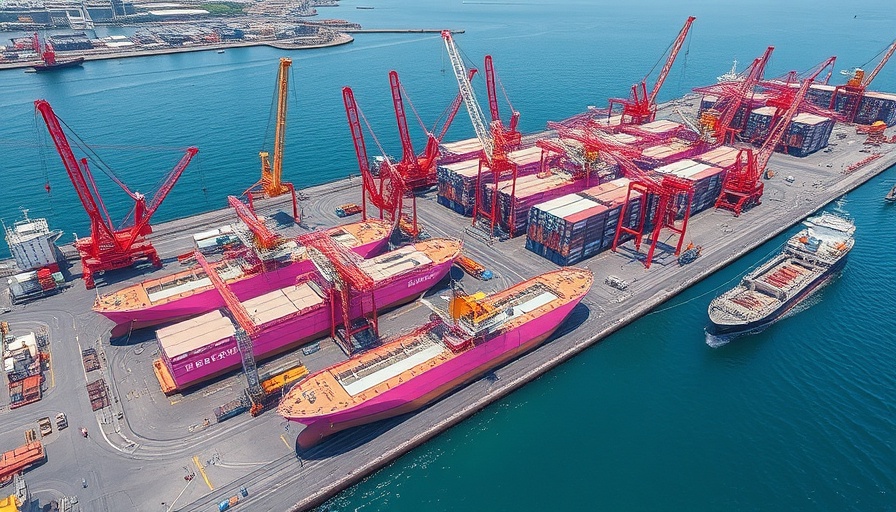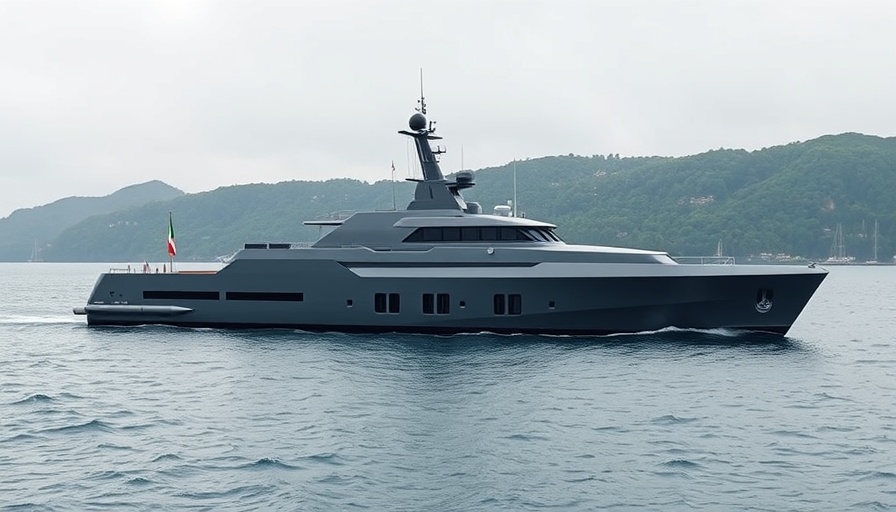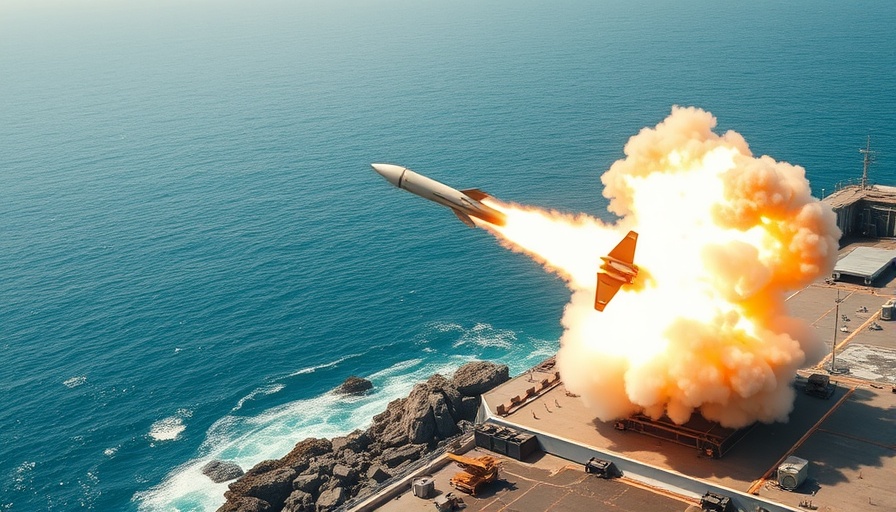
Imabari's Bold Move: A Game Changer in Shipbuilding
In a decisive step that is set to reshape Japan's maritime landscape, Imabari Shipbuilding, the nation's largest shipbuilder, has announced its acquisition of Japan Marine United Corporation (JMU). This monumental transaction, which aims to fortify Imabari's position in the competitive shipbuilding sector, comes at a time when the industry is grappling with evolving technologies and shifting global demands.
Why This Acquisition Matters
The merger enhances Imabari’s capacity in both domestic and international markets. By integrating JMU’s resources, Imabari not only expands its production capabilities but also gains access to JMU's advanced shipbuilding technologies and expertise, particularly in constructing high-performance vessels. As shipping demands grow, having a stronger portfolio of capabilities will allow Imabari to better meet customer needs, adhering to stricter environmental regulations and performance standards.
A New Era for Japanese Shipbuilding
Japan's shipbuilding industry, once a global leader, has faced increasing pressure from international competitors. The acquisition is seen as a proactive strategy to revitalize the Japanese shipbuilding sector, enhancing innovation and operational efficiency. Experts indicate that this merger could lead to the development of greener and more advanced vessels, aligning with global shifts towards sustainable maritime solutions.
Economic Impact and Industry Response
The economic implications of this acquisition are significant. Combining the strengths of both companies could lead to increased job security for employees and a boost in local economies where these shipyards are located. Industry experts anticipate that the move will prompt other companies within Japan’s maritime sector to explore similar mergers or partnerships, fostering collaboration that could enhance the country’s global competitiveness.
Challenges Ahead
Despite the promising outlook, challenges remain. Integrating two large companies with established cultures and practices will require strategic leadership and effective communication. Stakeholders will be watching closely to see how Imabari navigates these challenges, particularly in ensuring that the integration does not disrupt current projects and workforce morale.
Future of Shipbuilding: What Lies Ahead?
Looking towards the horizon, the merger positions Imabari to capitalize on upcoming trends in shipbuilding technology. The industry is on the brink of revolutionary changes due to digitalization, automation, and eco-friendly technologies. With this acquisition, Imabari could spearhead the shift towards more intelligent and environmentally-friendly vessels, potentially redefining safety standards and operational efficiency in maritime transport.
Conclusion: Embracing Change
The acquisition of JMU by Imabari represents more than just a business transaction; it embodies a hopeful future for Japan’s maritime industry. As conversations around sustainable development and technological advancement grow louder, this strategic move is a testament to Imabari’s commitment to innovation and resilience amidst a changing global market. Stakeholders and maritime enthusiasts alike should keep an eye on how this bold move unfolds.
Change can be daunting, but it also has the potential to drive progress. As Imabari and JMU embark on this new journey together, they embody the spirit of adaptation that could lead to a more robust and sustainable future for shipbuilding in Japan.
 Add Row
Add Row  Add
Add 




 Add Row
Add Row  Add
Add 

Write A Comment